 W
WThe 1890 British Ultimatum was an ultimatum by the British government delivered on 11 January 1890 to Portugal. The ultimatum forced the retreat of Portuguese military forces from areas which had been claimed by Portugal on the basis of historical discovery and recent exploration, but which the United Kingdom claimed on the basis of effective occupation. Portugal had attempted to claim a large area of land between its colonies of Mozambique and Angola including most of present-day Zimbabwe and Zambia and a large part of Malawi, which had been included in Portugal's "Rose-coloured Map".
 W
WThe Japan–South Korea trade dispute is an ongoing economic conflict between Japan and South Korea, the world's third- and tenth- largest national economies, respectively. It has also been referred to as the Japan–South Korea economic war.
 W
WAmerica's backyard is a concept often used in political science and international relations contexts to refer to the sphere of influence of the United States, the USA's traditional areas of dominance, especially Latin America.
 W
WThe Anglo-Austrian Alliance connected the Kingdom of Great Britain and the Habsburg Monarchy during the first half of the 18th century. It was largely the work of the British statesman Duke of Newcastle, who considered an alliance with Austria crucial to prevent the further expansion of French power.
 W
WThe Anglo–Dutch Wars were a series of conflicts mainly fought between the Dutch Republic and England. The first three occurred in the second half of the 17th century over trade and overseas colonies, while the fourth was fought a century later. Almost all the battles were naval engagements.
 W
WThe arms race between Great Britain and Germany that occurred from the last decade of the nineteenth century until the advent of World War I in 1914 was one of the intertwined causes of that conflict. While based in a bilateral relationship that had worsened over many decades, the arms race began with a plan by German Admiral Alfred von Tirpitz in 1897 to create a fleet in being to force Britain to make diplomatic concessions; Tirpitz did not expect the Imperial German Navy to defeat the Royal Navy.
 W
WThe Anglo-Prussian Alliance was a military alliance created by the Westminster Convention between Great Britain and Prussia that lasted formally between 1756 and 1762, during the Seven Years' War. It allowed Britain to concentrate most of its efforts against the colonial possessions of the French-led coalition while Prussia bore the brunt of the fighting in Europe. It ended in the final months of the conflict although strong ties between both kingdoms remained.
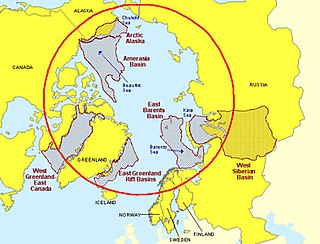 W
WThe Arctic resources race refers to the competition between global entities for newly available natural resources of the Arctic. Under the United Nations Convention of the Law of the Sea, five nations have the legal right to exploit the Arctic's natural resources within their exclusive economic zones: Canada, Russia, Denmark, Norway, and the United States.
 W
WIn the late nineteenth and early twentieth centuries, the South American nations of Argentina and Chile engaged in an expensive naval arms race to ensure the other would not gain supremacy in the Southern Cone.
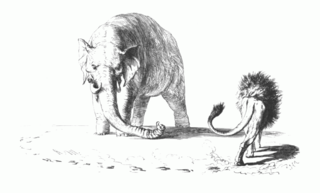 W
WAustria and Prussia were the most powerful principalities in the Holy Roman Empire by the 18th and 19th centuries and had engaged in a struggle for supremacy in Central Europe. Known in German as Deutscher Dualismus, the rivalry was characterized by major territorial conflicts, economic, cultural and political contention for sovereign leadership among the German-speaking peoples, an issue known as the German question in the 19th century.
 W
WA naval arms race between the Austrian Empire and Italy began in the 1860s when both ordered a series of ironclad warships, steam-propelled vessels protected by iron or steel armor plates and far more powerful than all-wood ships of the line. These ships were constructed to establish control over the Adriatic Sea in the event of a conflict between the two countries.
 W
WThe Blue Dot Network (BDN) is a multi-stakeholder initiative formed by the United States, Japan, and Australia to provide assessment and certification of infrastructure development projects worldwide on measures of financial transparency, environmental sustainability, and impact on economic development, with the goal of mobilizing private capital to invest abroad.
 W
WThe Bulls of Donation, also called the Alexandrine Bulls, and the Papal donations of 1493, are three papal bulls of Pope Alexander VI delivered in 1493 which purported to grant overseas territories to Portugal and the Catholic Monarchs of Spain.
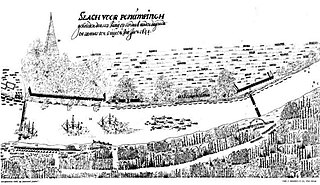 W
WThe Cambodian–Dutch War from 1643–1644 was a conflict sparked by a coup which brought a new Cambodian King to the throne who converted to Islam with the help of Malay traders resident in the country. The new King initiated a massacre of Dutch East India Company employees and subsequently defeated the Dutch forces sent to extract retribution from the Cambodians.
 W
WThe Capetian–Plantagenet rivalry was a series of conflicts and disputes that covered a period of 100 years (1159–1259) during which the House of Capet, rulers of the Kingdom of France, fought the House of Plantagenet, rulers of the Kingdom of England, to suppress the growing power of the Plantagenet-controlled Angevin Empire. Some historians refer to that series of events as the "First Hundred Years War".
 W
WThe China–United States trade war is an ongoing economic conflict between China and the United States. U.S. President Donald Trump in January 2018 began setting tariffs and other trade barriers on China with the goal of forcing it to make changes to what the U.S. says are "unfair trade practices" and intellectual property theft. The Trump administration stated that these practices may contribute to the U.S.–China trade deficit, and that the Chinese government requires transfer of American technology to China. In response to US trade measures, the Chinese government accused the Trump administration of engaging in nationalist protectionism and took retaliatory action. After the trade war escalated through 2019, on January 15, 2020, the two sides reached a phase one agreement, however tensions continued to persist. By the end of the Trump presidency, the trade war was widely characterized as largely a failure.
 W
WThe Clash of Civilizations is a thesis that people's cultural and religious identities will be the primary source of conflict in the post-Cold War world. The American political scientist Samuel P. Huntington argued that future wars would be fought not between countries, but between cultures. It was proposed in a 1992 lecture at the American Enterprise Institute, which was then developed in a 1993 Foreign Affairs article titled "The Clash of Civilizations?", in response to his former student Francis Fukuyama's 1992 book, The End of History and the Last Man. Huntington later expanded his thesis in a 1996 book The Clash of Civilizations and the Remaking of World Order.
 W
WThe Cold War was a period of geopolitical tension between the United States and the Soviet Union and their respective allies, the Western Bloc and the Eastern Bloc, which began following World War II. Historians do not fully agree on its starting and ending points, but the period is generally considered to span the 1947 Truman Doctrine to the 1991 Dissolution of the Soviet Union. The term "cold" is used because there was no large-scale fighting directly between the two superpowers, but they each supported major regional conflicts known as proxy wars. The conflict was based around the ideological and geopolitical struggle for global influence by these two superpowers, following their temporary alliance and victory against Nazi Germany in 1945. Aside from the nuclear arsenal development and conventional military deployment, the struggle for dominance was expressed via indirect means such as psychological warfare, propaganda campaigns, espionage, far-reaching embargoes, rivalry at sports events and technological competitions such as the Space Race.
 W
WDe-escalation is a behavior that is intended to prevent escalation of conflicts. It may also refer to approaches in conflict resolution. People may become committed to behaviors that tend to escalate conflict, so specific measures must be taken to avoid such escalation.
 W
WThe Diplomatic Revolution of 1756 was the reversal of longstanding alliances in Europe between the War of the Austrian Succession and the Seven Years' War. Austria went from an ally of Britain to an ally of France, while Prussia became an ally of Britain. The most influential diplomat involved was an Austrian statesman, Wenzel Anton von Kaunitz.
 W
WDudum siquidem is a papal bull issued by Pope Alexander VI on 26 September 1493, one of the Bulls of Donation addressed to the Catholic Monarchs Isabella I of Castile and Ferdinand II of Aragon which supplemented the bull Inter caetera and purported to grant to them "all islands and mainlands whatsoever, found and to be found, discovered and to be discovered, that are or may be or may seem to be in the route of navigation or travel towards the west or south, whether they be in western parts, or in the regions of the south and east and of India".
 W
WThe Dutch–Portuguese War was an armed conflict involving Dutch forces, in the form of the Dutch East India Company and the Dutch West India Company, against the Portuguese Empire. Beginning in 1602, the conflict primarily involved the Dutch companies invading Portuguese colonies in the Americas, Africa, and the East Indies. The war can be thought of as an extension of the Eighty Years' War being fought in Europe at the time between Spain and the Netherlands, as Portugal was in a dynastic union with the Spanish Crown after the War of the Portuguese Succession, for most of the conflict. However, the conflict had little to do with the war in Europe and served mainly as a way for the Dutch to gain an overseas empire and control trade at the cost of the Portuguese. English forces also assisted the Dutch at certain points in the war. Because of the commodity at the center of the conflict, this war would be nicknamed the Spice War.
 W
WThe enclaves of Forcados and Badjibo were two territories close to the river Niger, in modern Nigeria, leased to France by the United Kingdom under the Anglo-French Convention of 1898. They were obtained by France after several expeditions along the Niger, by Hourst (1894), Granderye (1898–99), Toutée, and Lenfant. France wanted to determine whether its colonies in French Sudan could more easily be supplied upstream along the Niger rather than via the traditional Dakar route.
 W
WThe Foundations of Geopolitics: The Geopolitical Future of Russia is a geopolitical book by Aleksandr Dugin. It has had some influence within the Russian military, police, and foreign policy elites and has been used as a textbook in the Academy of the General Staff of the Russian military. Its publication in 1997 was well received in Russia. Powerful Russian political figures subsequently took an interest in Dugin, a Russian eurasianist, fascist and nationalist who has developed a close relationship with Russia's Academy of the General Staff.
 W
WThe term France–Habsburg rivalry describes the rivalry between France and the House of Habsburg. The Habsburgs headed an expansive and evolving Empire that included, at various times, the Holy Roman Empire, the Spanish Empire and the Austro-Hungarian Empire from the Diet of Augsburg in the High Middle Ages until the dissolution of the monarchy following the World War I in the Late modern period.
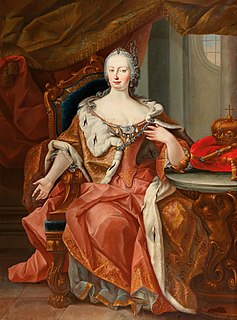 W
WThe Franco-Austrian Alliance was a diplomatic and military alliance between France and Austria that was first established in 1756 after the First Treaty of Versailles. It lasted for much of the remainder of the century until it was abandoned during the French Revolution.
 W
WThe Franco-Visigothic Wars were a series of wars between the Franks and the Visigoths, but it also involved the Burgundians, the Ostrogoths and the Romans. Most noteworthy war of the conflict would be the Second Franco-Visigothic War that included the famous Battle of Vouillé and resulted in Frankish annexation of most of Southern France.
 W
WFrench–German (Franco-German) enmity was the idea of unavoidably hostile relations and mutual revanchism between Germans and French people that arose in the 16th century and became popular with the Franco–Prussian War of 1870–1871. It was an important factor in the unification of Germany, and World War I, and ended after World War II, when under the influence of the Cold War West Germany and France both became part of NATO and the European Coal and Steel Community.
 W
WArctic geopolitics is the area study of geopolitics on the Arctic region. The study of geopolitics deals with the "inalienable relationship between geography and politics", as it investigates the effects of the Earth's geography on politics and international relations. Arctic geopolitics focuses on the inter-state relations in the Arctic, which is the northernmost polar region. It is composed of the Arctic Ocean and its adjacent seas, and is home to around four million people. The states in or bordering the Arctic are commonly referred to as the Arctic Eight, and are the United States, Canada, Russia, Finland, the Kingdom of Denmark (Greenland), Norway, Iceland and Sweden.
 W
W"The Great Game" was a political and diplomatic confrontation that existed for most of the 19th century and beginning of the 20th century between the British Empire and the Russian Empire, over Afghanistan, Tibetan Kingdom, and neighbouring territories in Central and South Asia. It also had direct consequences in Persia and British India. Britain was fearful of Russia invading India to add to the vast empire that Russia was building. As a result, there was a deep atmosphere of distrust and the talk of war between the two major European empires. Britain made it a high priority to protect all the approaches to India, and the "great game" is primarily how the British did this. Some historians have concluded that Russia had no plans involving India, as the Russians repeatedly stated to the British.
 W
WThe Guelphs and Ghibellines were factions supporting the pope and the Holy Roman emperor, respectively, in the Italian city-states of central and northern Italy.
 W
WSince the Partition of British India in 1947 and subsequent creation of the dominions of India and Pakistan, the two countries have been involved in a number of wars, conflicts, and military standoffs. A long-running dispute over Kashmir and cross-border terrorism have been the predominant cause of conflict between the two states, with the exception of the Indo-Pakistani War of 1971, which occurred as a direct result of hostilities stemming from the Bangladesh Liberation War in erstwhile East Pakistan.
 W
WInter caetera was a papal bull issued by Pope Alexander VI on the 4 May 1493, which granted to the Catholic Monarchs King Ferdinand II of Aragon and Queen Isabella I of Castile all lands to the "west and south" of a pole-to-pole line 100 leagues west and south of any of the islands of the Azores or the Cape Verde islands.
 W
WThe Inter-Parliamentary Alliance on China (IPAC) is an international, cross-party alliance of parliamentarians from democratic countries focused on relations with the People's Republic of China (PRC), and specifically, the Chinese Communist Party (CCP). It was established on June 4, 2020, on the anniversary of the 1989 Tiananmen Square protests. The alliance comprises over 100 MPs from the world's democratic legislatures, Ireland becoming the 20th national to join the alliance in February 2021. Each legislature represented takes turns to chair the alliance on a rotating basis. Its purpose is to create a coordinated response to China on global trade, security and human rights.
 W
WThe Iran–Israel proxy conflict, also known as the Iran–Israel proxy war or Iran–Israel Cold War, is an ongoing proxy war between Iran and Israel. The conflict involves threats and hostility by Iran's leaders against Israel, and their declared objective to dissolve the Jewish state. Iran has provided funding, weapons and training to groups, including Lebanese Hezbollah, Hamas and Palestinian Islamic Jihad (PIJ) both in the Gaza Strip, which have vowed and carried out attacks on Israel, and which have been designated terrorist organisations by many countries. Because of Iran’s hostility to Israel, Israel is also concerned by Iran's nuclear weapons program and missile program, and is seeking to downgrade Iran's allies and proxies, as well as preventing Iranian entrenchment in Syria, another sworn enemy of Israel.
 W
WThe Iran–Saudi Arabia proxy conflict, sometimes also referred to as the Middle Eastern Cold War, is the ongoing struggle for influence in the Middle East and surrounding regions between Iran and Saudi Arabia. The two countries have provided varying degrees of support to opposing sides in nearby conflicts, including the civil wars in Syria and Yemen. The rivalry also extends to disputes in Bahrain, Lebanon, Qatar, Pakistan, Afghanistan, Nigeria, and Morocco, as well as broader competition in North and East Africa, parts of South Asia, Central Asia, Southeast Asia, the Balkans, and the Caucasus.
 W
WThe Đại Việt–Khmer Wars were a series of wars fought between the kingdom of Đại Việt and the Khmer Empire between 1123 and 1150, during the climax of the Khmer–Cham wars.
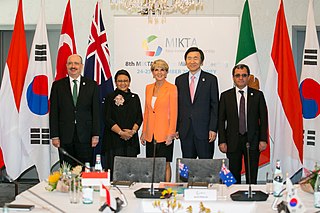 W
WMIKTA is an informal middle power partnership between Mexico, Indonesia, South Korea, Turkey and Australia. It is led by the Foreign Ministers. It was created in 2013 on the sidelines of the United Nations General Assembly in New York City and aims to support effective global governance.
 W
WThe nuclear arms race was an arms race competition for supremacy in nuclear warfare between the United States, the Soviet Union, and their respective allies during the Cold War. During this same period, in addition to the American and Soviet nuclear stockpiles, other countries developed nuclear weapons, though none engaged in warhead production on nearly the same scale as the two superpowers.
 W
WThe Ottoman–Habsburg wars were fought from the 16th through the 18th centuries between the Ottoman Empire and the Habsburg Monarchy, which was at times supported by the Holy Roman Empire, Kingdom of Hungary, Polish–Lithuanian Commonwealth, and Habsburg Spain. The wars were dominated by land campaigns in Hungary, including Transylvania and Vojvodina, Croatia and central Serbia.
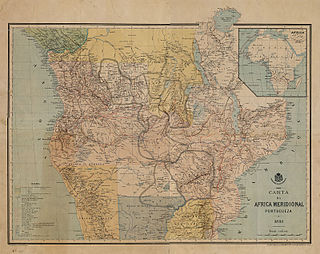 W
WThe Pink Map, also known in English as the Rose-Coloured Map, was a map prepared in 1885 to represent Portugal's claim of sovereignty over a land corridor connecting their colonies of Angola and Mozambique during the Scramble for Africa. The area claimed included most of what is currently Zimbabwe and large parts of modern Zambia and Malawi. In the first half of the 19th century, Portugal fully controlled only a few coastal towns in Angola and Mozambique. It also claimed suzerainty over other almost independent towns and nominally Portuguese subjects in the Zambezi valley, but could rarely enforce its claims; most of the territory now within Angola and Mozambique was entirely independent of Portuguese control. Between 1840 and 1869, Portugal expanded the area it controlled but felt threatened by the activities of other powers.
 W
WThe Qatar–Saudi Arabia diplomatic conflict refers to the ongoing struggle for regional influence between Qatar and Saudi Arabia (KSA), both of which are members of the Gulf Cooperation Council (GCC). Qatar–Saudi Arabia relations have been especially strained since the beginning of the Arab Spring, that left a power vacuum both states sought to fill, with Qatar being supportive of the revolutionary wave and Saudi Arabia opposing it. Both states are allies of the United States, and have avoided direct conflict with one another.
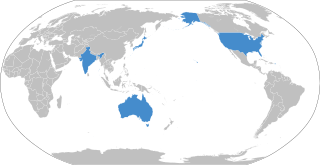 W
WThe Quadrilateral Security Dialogue is a strategic dialogue between the United States, Japan, Australia and India that is maintained by talks between member countries. The dialogue was initiated in 2007 by the then Prime Minister of Japan Shinzo Abe, with the support of the then Vice President of USA Dick Cheney, the then Prime Minister of Australia John Howard and the then Prime Minister of India Manmohan Singh. The dialogue was paralleled by joint military exercises of an unprecedented scale, titled Exercise Malabar. The diplomatic and military arrangement was widely viewed as a response to increased Chinese economic and military power, and the Chinese government responded to the Quadrilateral dialogue by issuing formal diplomatic protests to its members.
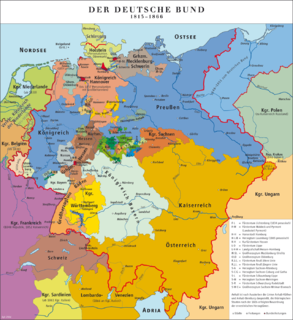 W
WThe Rhine crisis of 1840 was a diplomatic crisis between the Kingdom of France and the German Confederation, caused by the demand by French minister Adolphe Thiers that the river Rhine be reinstated as France's border in the east, at a loss of some 32,000 km2 (12,000 sq mi) of German territory.
 W
WThe Rhodesian mission in Lisbon, the capital of Portugal, operated from September 1965 to May 1975. It was a diplomatic mission representing Rhodesia, initially as a self-governing colony of Britain and, after the Unilateral Declaration of Independence in November 1965, as an unrecognised state. Rhodesia informed Britain of its intent to open a Lisbon mission headed by an accredited representative, independent from the British Embassy in the city, in June 1965. Whitehall refused to endorse the idea but Rhodesia continued nonetheless, and later that month appointed Harry Reedman to head the mission. The British government attempted unsuccessfully to block this unilateral act—Rhodesia's first—for some months afterwards.
 W
WThe Scramble for Africa, also called the Partition of Africa, Conquest of Africa, or the Rape of Africa, was the invasion, occupation, division, and colonization of most of Africa by seven Western European powers during a short period known to historians as the New Imperialism. The 10 percent of Africa that was under formal European control in 1870 increased to almost 90 percent by 1914, with only Ethiopia (Abyssinia) and Liberia remaining independent.
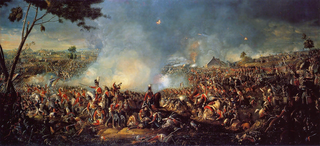 W
WThe Second Hundred Years' War is a periodization or historical era term used by some historians to describe the series of military conflicts between Great Britain and France that occurred from about 1689 to 1815. For the context see International relations, 1648–1814.
 W
WThe Sino-Dutch conflicts were a series of conflicts between the Ming dynasty of China and the Dutch East India Company over trade and land throughout the 1620s, 1630s, and 1662. The Dutch were attempting to compel China to accede to their trade demands, but the Chinese defeated the Dutch forces.
 W
WA naval arms race among Argentina, Brazil and Chile—the most powerful and wealthy countries in South America—began in the early twentieth century when the Brazilian government ordered three dreadnoughts, formidable battleships whose capabilities far outstripped older vessels in the world's navies.
 W
WThe Space Race was a 20th-century competition between two Cold War adversaries, the Soviet Union (USSR) and the United States (US), to achieve superior spaceflight capability. It had its origins in the ballistic missile-based nuclear arms race between the two nations following World War II. The technological advantage demonstrated by spaceflight achievement was seen as necessary for national security, and became part of the symbolism and ideology of the time. The Space Race brought pioneering launches of artificial satellites, robotic space probes to the Moon, Venus, and Mars, and human spaceflight in low Earth orbit and ultimately to the Moon.
 W
WThe Sputnik crisis was a period of public fear and anxiety in Western nations about the perceived technological gap between the United States and Soviet Union caused by the Soviets' launch of Sputnik 1, the world's first artificial satellite. The crisis was a significant event in the Cold War that triggered the creation of NASA and the Space Race between the two superpowers. The satellite was launched on October 4, 1957, from the Baikonur Cosmodrome. This created a crisis reaction in national newspapers such as the New York Times, which mentioned the satellite in 279 articles between October 6, 1957, and October 31, 1957.
 W
WThe Syrian Civil War is an ongoing multi-sided civil war, fought in Syria, between the Syrian Arab Republic led by Syrian president Bashar al-Assad and various domestic and foreign forces that oppose both the Syrian government and each other.
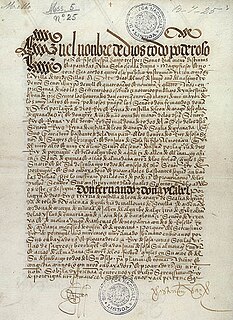 W
WThe Treaty of Tordesillas, signed in Tordesillas, Spain on 7 June 1494, and authenticated in Setúbal, Portugal, divided the newly-discovered lands outside Europe between the Portuguese Empire and the Spanish Empire, along a meridian 370 leagues west of the Cape Verde islands, off the west coast of Africa. That line of demarcation was about halfway between the Cape Verde islands and the islands entered by Christopher Columbus on his first voyage, named in the treaty as Cipangu and Antilia.
 W
WThe Treaty of Zaragoza, also called the Capitulation of Zaragoza was a peace treaty between Castile and Portugal, signed on 22 April 1529 by King John III of Portugal and the Castilian emperor Charles V, in the Aragonese city of Zaragoza. The treaty defined the areas of Castilian and Portuguese influence in Asia, in order to resolve the "Moluccas issue", which had arisen because both kingdoms claimed the Maluku Islands for themselves, asserting that they were within their area of influence as specified in 1494 by the Treaty of Tordesillas. The conflict began in 1520, when expeditions of both kingdoms reached the Pacific Ocean, because no agreed meridian of longitude had been established in the Orient.
 W
WThe Tripartite Struggle for control of northern India took place in the ninth century, between the Pratihara Empire, the Pala Empire and the Rashtrakuta Empire.
 W
WThe United States Department of Defense China Task Force was announced by the United States president Joe Biden on February 10 2021. Biden said the task force would help the United States "win the competition of the future" with China. According to the DOD News service, the task force will be led by Ely Ratner, an assistant to US Secretary of Defense Lloyd Austin III. On the day the task force was announced, Chinese leader Xi Jinping said that China sought cooperation with the United States, but that confrontation would be "definitely catastrophic for both countries and the world."
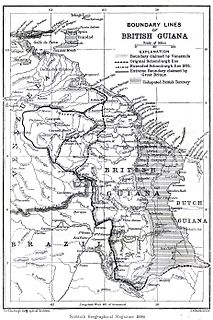 W
WThe Venezuelan crisis of 1895 occurred over Venezuela's longstanding dispute with the United Kingdom about the territory of Essequibo and Guayana Esequiba, which Britain claimed as part of British Guiana and Venezuela saw as Venezuelan territory. As the dispute became a crisis, the key issue became Britain's refusal to include in the proposed international arbitration the territory east of the "Schomburgk Line", which a surveyor had drawn half-a-century earlier as a boundary between Venezuela and the former Dutch territory of British Guiana. The crisis ultimately saw Britain accept the United States' intervention in the dispute to force arbitration of the entire dispute territory, and tacitly accept the US right to intervene under the Monroe Doctrine. A tribunal convened in Paris in 1898 to decide the matter, and in 1899 awarded the bulk of the disputed territory to British Guiana.